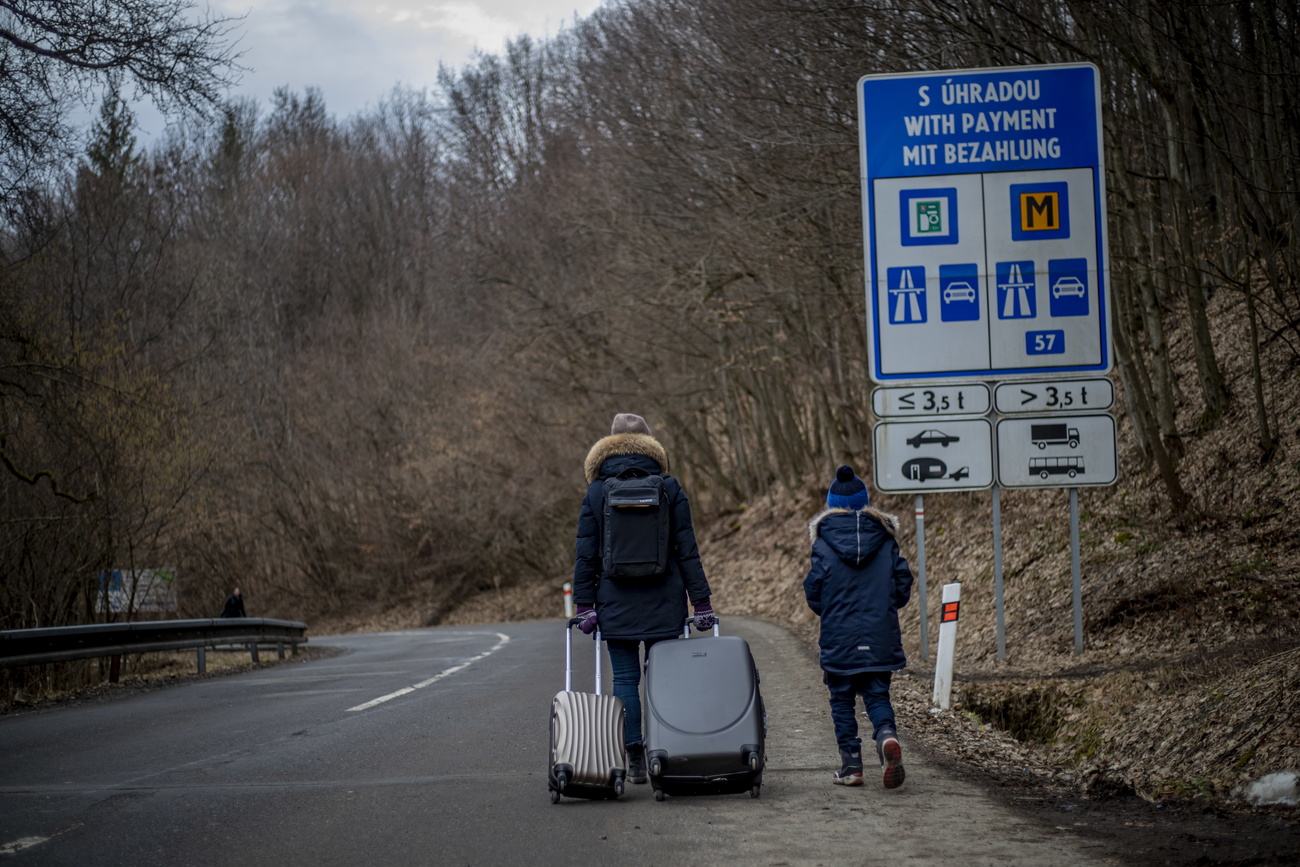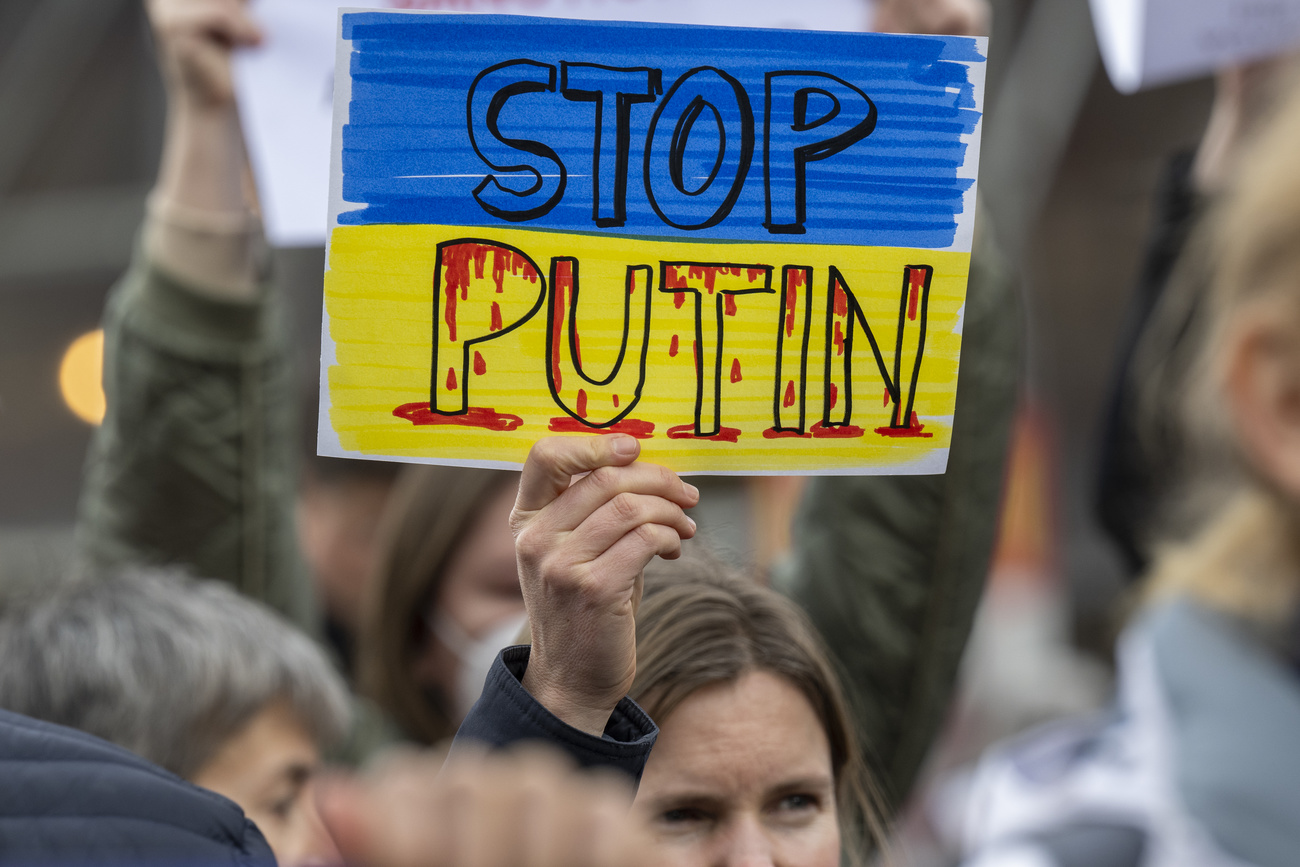
Up to 2,000 Ukrainians could seek refuge in Switzerland

While the crisis in Ukraine has not yet led to any migration to Switzerland, depending on the duration and intensity of the war, a few hundred or up to 2,000 people could seek refuge in Switzerland, according to current government estimates.
In the short and medium term, migrants from Ukraine are likely to go mainly to the EU states of Poland, Slovakia, Hungary and Romania, with which Ukraine shares borders, the State Secretariat for Migration (SEM) said on Saturday.
It said the states most likely to be affected are those in which many Ukrainians already live. The Ukrainian diaspora in Switzerland is relatively small compared with that in other European countries, with around 7,000 people, according to the SEM.
However, due to the unclear and rapidly changing situation in Ukraine, the SEM said it was not possible to make a final assessment – the situation is being analysed on an ongoing basis.
Deadly onslaught
The UN refugee agency said on Saturday that nearly 120,000 people had so far fled Ukraine into neighboring countries in the wake of Russian invasion.
The number was going up fast as Ukrainians grabbed their belongings and rushed to escape from a deadly Russian onslaught on their nation, including an attempt to take the capital.
The agency expects up to four million Ukrainians could flee if the situation deteriorates further.
On Sunday an extraordinary meeting of EU interior and justice ministers on the situation in Ukraine will take place in Brussels. Justice Minister Karin Keller-Sutter will take part.

More
Switzerland faces pressure to toughen sanctions on Russia

In compliance with the JTI standards
More: SWI swissinfo.ch certified by the Journalism Trust Initiative


















![The four-metre-long painting "Sonntag der Bergbauern" [Sunday of the Mountain Farmers, 1923-24/26] had to be removed by a crane from the German Chancellery in Berlin for the exhibition in Bern.](https://www.swissinfo.ch/content/wp-content/uploads/sites/13/2025/12/01_Pressebild_KirchnerxKirchner.jpg?ver=1ea8acae)










You can find an overview of ongoing debates with our journalists here . Please join us!
If you want to start a conversation about a topic raised in this article or want to report factual errors, email us at english@swissinfo.ch.